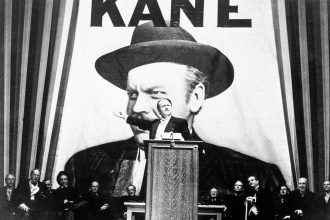In the fall of 2018, McGill students were hard-pressed to find someone who wasn’t talking about “changing the name.” The movement, championed by Indigenous students and allies, sought to highlight the racist connotation associated with McGill sports teams’ “Redmen” name, and demanded change. The campaign created a buzz across campus as students engaged in demonstrations and nearly every major campus newspaper covered the controversial renaming process. Finally, Principal and Vice-Chancellor Suzanne Fortier issued a long-awaited statement which acknowledged the feelings of student-athletes and alumni who harbored deep connections to the team name; they considered it a source of student pride. Yet, Fortier ultimately sided with campaigners, stating that, “the Redmen name is not one that our community would choose today, and it is not one that McGill should carry forward into our third century.”
To the unsuspecting student, it might seem as though McGill is on the brink of genuine peacemaking, or at the very least, making sincere efforts to create a more respectful, hospitable environment for Indigenous students. One does not need to look further than the university’s website to find First People’s House, a member of Student Services, which highlights Indigenous students’ success and offers various forms of support. As of 2017, the university publicized its goal to recruit more Indigenous students and faculty, as well as integrate Indigenous perspectives in the classroom. The application process, which likely serves as one of the freshman student’s first encounters with McGill, boasts of its efforts to welcome a greater number of Indigenous students. It is even suggested that Indigenous candidates provide an additional, optional personal statement pertaining to their distinct experiences and educational opportunities that previous university standards failed to recognize.
And yet, I believe that McGill’s support for the building of a Thirty Meter Telescope on Mauna Kea tells a different story — one which effectively reveals the university’s hypocrisy.
Indigenous Hawaiians consider the dormant volcano Mauna Kea to be sacred land. Their creation story tells of the uniting of the Sky Father and the Earth Mother, which resulted in the birth of the Hawaiian Islands. Mauna Kea represents the Islands’ piko, or its navel, and symbolizes Indigenous Hawaiian ancestry. Understandably, plans to build a Thirty Meter Telescope on Mauna Kea incited protests. During the past four months, Indigenous Hawaiians have camped out by this sacred land and continued protests; the protectors of the volcano are determined to prevent the installation of the fourteenth telescope on the site.
Evidently, the project does not have Indigenous peoples’ consent
Evidently, the project does not have Indigenous peoples’ consent. This fact does not appear to bother McGill, as the university supports the installation of the Thirty Meter Telescope at Mauna Kea, despite its alleged desire to promote improved relations with Indigenous communities. The Association of Canadian Universities for Research in Astronomy (ACURA), of which McGill is a member, pledges funding for 15% of the project; the telescope’s total cost is estimated at US$1.4 billion.
In late August of this year, the SSMU issued a statement which accused McGill of being “complicit in [the telescope’s] construction, and by extension in the proposed destruction of the sacred lands of Mauna Kea.” The student union executives further called on McGill to publicly endorse the telescope’s relocation. McGill’s Indigenous students and alumni continued in a similar vein, writing letters and using media coverage to spur McGill’s divestment from the project’s construction on meaningful grounds. According to Indigenous Hawaiians, Canadian universities’ divestment could be just what it takes to stop the project.
… which raises questions about whether McGill sincerely cares about the preservation of Indigenous culture or the consent of their communities, or rather, adopts Indigenous-friendly pretenses for the sake of disingenuous PR moves
Disappointingly, McGill has failed to offer any official response to the protests of Indigenous Hawaiians and its own students. The university’s support for the Thirty Meter Telescope project does not seem to have wavered, which raises questions about whether McGill sincerely cares about the preservation of Indigenous culture or the consent of their communities, or rather, adopts Indigenous-friendly pretenses for the sake of disingenuous PR moves.
I make no attempt to discount the significance of the steps McGill has taken towards respectful relations with Indigenous people. McGill’s establishment of the Indigenous studies program, its commitment to affirmative action with regards to employment and enrollment, and the long-awaited decision to leave racist slurs in the past are undoubtedly steps — even strides — in the right direction. This progress deserves some recognition and even celebration.
Nonetheless, as the university pledges to support yet another violation of Indigenous rights, it is clear that McGill’s administration has a long way to go before it can claim its desire for meaningful reconciliation without running the risk of participating in glaring hypocrisy.








